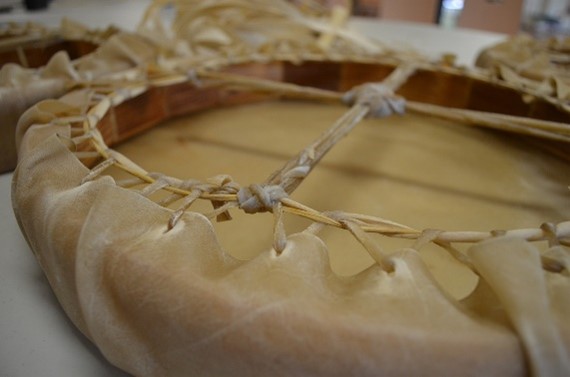Spirit Departing Song and Honoring Culture and Spirit at EOL
Melissa C Palmer, LCSW, ACHP-SW, APHSW-C, JD Dec 12, 2023
Our palliative care team recently had the honor of consulting with the family of Joseph** (the facts of the story have been changed for privacy), a 42-year-old man who identified as a member of the Navajo Nation and had been living in western Arizona for the past several years. Joseph grew up in New Mexico with his parents Joe and Lucia, six siblings and a huge, loving community; he was considered the person who held community sacred, and his family was hopeful that he would be an elder in his tribe one day. Joseph loved to climb in the hills near his home, enjoyed singing Native songs that told stories of his ancestors, and had a voice sent from the Creator. Joseph’s three children, all still school aged, were unable to visit the hospital because they had school and their mother wanted to keep them close to the family at home.
When Joseph first got sick, he dismissed his symptoms as the flu or just feeling run down. By the time he finally asked for help, his medical situation deteriorated rapidly. The medical team in his local hospital recommended to fly Joseph from New Mexico to our facility to receive a higher level of care. When he arrived at our hospital, Joseph was not arousable, and he was in multi-organ failure. The team was not hopeful that medicine could heal Joseph’s body.
Far away from home, a few of his family members including his parents made the financial and time sacrifice to be present with Joseph at all times at his bedside. A few hospital staff tried to ask them to leave, but Joseph’s family was adamant that they needed to be present in case something happened and they needed to provide him with spiritual guidance. By the time our team was called, Joseph’s medical picture looked bleak.
Joe and Lucia shared about Joseph’s work with the children on indigenous lands and his deep sensitivity to the pain of others. We learned that Joseph was an advocate for the disadvantaged and vulnerable. He was hoping to create a way to bring more jobs and stability to his community. They were already told that Joseph’s prognosis is poor, and they were beginning to accept that his wishes would not come true. However, they were struggling with Joseph being so far from his family and other cherished people in his life and his tribe that would honor his death rituals. We asked about ways that we could honor Joseph in his last minutes to hours, and his father asked for 15 minutes where he and the family were not disturbed so that they could perform a ritual that prepares the body for death and opens up the gateway to the spirit world. Joe was hopeful for a drum to complete his ceremony.
Thankfully, music therapist Angela Wibben was working and brought over several drums that might be appropriate. Angela and I stood vigil outside the room while Joe created sacred space for his son. We could feel the vibrations of the drum and singing through the drawn curtains and closed doors; it was an honor to witness the heart felt and soulful ritual. During the Spirit Departing Song, we watched in amazement with Joseph’s nurse while Joseph’s vital signs changed and became more stable during the song.
Each person is unique with regard to their cultural, language and spiritual identity. As palliative care providers, we have the opportunity to hold space and honor the sacred for patients like Joseph. Please find an article below about navigating palliative care in a culturally and linguistically sensitive way: